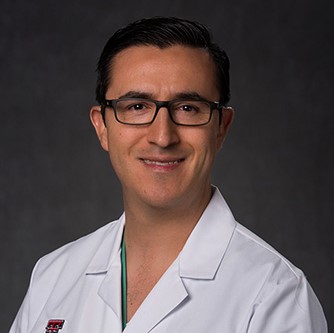AGA Equity Project
AGA has committed to a multi-year effort spanning all aspects of our organization to achieve equity and eradicate disparities in digestive diseases.
A six-point commitment to equity
In July 2020, we introduced the AGA Equity Project to make a significant impact on the goals enumerated in our diversity policy. The project’s advisory board is working through a multi-year strategic plan to achieve the following aims:
- A just world free of health disparities in digestive diseases and free of inequities in access and effective health care delivery.
- State-of-the-art and well-funded research that aligns with the realities of the current multicultural patient population and disease states to achieve health equity for all.
- A world where it is expected and normal that both members and society leadership structures are diverse, and people of color and women are included in organizational decision making.
- Recognition of accomplishments of diverse leaders. In addition, all leaders recognize, inspire and cultivate the next generation of prominent, diverse leaders.
- An engaged AGA membership and staff educated about unconscious bias and committed to the eradication of racism and prejudice towards patients, colleagues, and communities.
- The existence of a diverse, culturally and socially aware, large and vocal early career membership that leads the field towards achieving the vision.
AGA aspires to be a scientific publishing enterprise that is diverse, equitable, inclusive and accessible.
To achieve this goal, the AGA journals make the following commitments:
- To publish content that appropriately reflects the diversity within the gastroenterology and hepatology community.
- To create and adhere to processes, practices and policies that are equitable and inclusive.
- To eliminate barriers that prevent access to the AGA journals by groups underrepresented in science and medicine, or from underresourced areas as authors, reviewers or readers.
Our efforts support the AGA Equity Project’s aim to advance state-of-the-art and well-funded research that aligns with the realities of the current multicultural patient population and disease states to achieve health equity for all.
Members doing the work
Learn more about the creation and vision of the AGA Equity Project.
AGA's stance on equity in GI
As the number of women in gastroenterology grows, so does AGA’s portfolio of programs focused on maximizing the role of women in GI.
The AGA Institute Council is taking targeted steps to ensure diverse voices and opinions are represented in DDW programming.
We commit to a diverse, equitable and inclusive workplace where staff are comfortable as their authentic selves and know that success is based on their contributions.
AGA, along with several other GI societies, acknowledges the concerns raised in a recent statement from Rainbows in Gastro and reaffirms our collective commitment to safety and inclusivity for our LGBTQ+ members and patients.
We condemn the recent acts of intimidation and violence in the Asian-American and Pacific Islander community.
AGA is concerned by the Executive Order on Combating Race and Sex Stereotyping issued on Sept. 22, 2020. This order, while confirming that training of the federal workforce to create an inclusive workspace is beneficial, also leads to a misguided perception of the purpose and outcomes of this type of training. In addition, it may have unintended ramifications on institutions receiving federal research funding.
ABGH’s mission focuses on promoting health equity in Black communities, advancing science and developing the careers of Black gastroenterologists, hepatologists, and scientists.
Official statement on diversity, approved by the AGA Governing Board, February 2016.
In this episode of Small Talk, Big Topics hosts Drs. Matthew Whitson and Nina Nandy interview guests Drs. Christopher Velez and Sonali Paul for a special Pride Month episode.
Advisory board
CO-CHAIRS

Byron Cryer, MD, Professor of Medicine, University of Texas Southwestern Medical School

Sandra Quezada, MD, MS, Associate Professor of Medicine, University of Maryland School of Medicine
MEMBERS

John M. Carethers, MD, AGAF, Professor and Chair, Department of Internal Medicine, University of Michigan

Rotonya Carr, MD, Assistant Professor of Medicine, Division of Gastroenterology, University of Pennsylvania Health System

Lukejohn Day, MD, AGAF, Associate Professor, University of California, San Francisco

Carlos R. Diaz, MD, Fellow, University of Miami

Lynn Grone, Vice President, Organizational Effectiveness, AGA Institute

Wendy Henderson, PhD, Professor, University of Connecticut

Antonio Mendoza-Ladd, MD, Assistant Professor of Medicine, Texas-Tech University

Craig A. Munroe, MD, Associate Chief for Clinical Innovation, University of California, San Francisco

Kimberly M. Persley, MD, AGAF, Gastroenterologist, Texas Digestive Disease Consultants
AGA STAFF LIAISON

Celena NuQuay, Vice President, Constituency Programs and Governance














